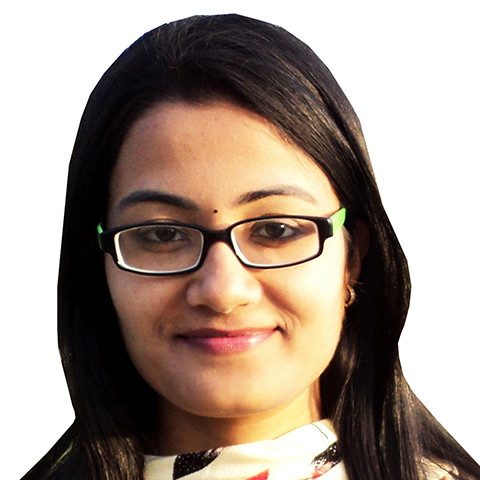Chemistry of Milk
Course Attendees
Still no participant
Course Reviews
Still no reviews
Course Name : Chemistry of Milk
Code (Credit) : CUTM1149 (2-1-0)
Course Objectives
- Acquaint students with the definition, chemical composition and structure of milk.
- To impart knowledge regarding classification of milk proteins, milk enzymes, milk carbohydrates, milk lipids and milk salts etc.
- Demonstrate metallic contamination of milk.
Course Outcomes
CO1: Able to know the chemistry of milk protein, fat, and carbohydrate their structure, fractions and their composition in milk: PO1, PO12
CO2: Estimation of the chemical composition of milk like protein, fat, total solids, SNF, lactose, ash, enzymes such as alkaline phosphate and lipase in milk etc: PO4
CO3: Able to know the chemical structure of different molecules, charge distribution, amino acid, fatty acid sequence, mineral composition etc: PO1, PO6, PO12
PO1: Engineering knowledge: Apply the knowledge of mathematics, science, engineering fundamentals, and an engineering specialization to the solution of complex engineering problems.
PO4: Conduct investigations of complex problems: Use research-based knowledge and research methods including design of experiments, analysis and interpretation of data, and synthesis of the information to provide valid conclusions.
PO6: The engineer and society: Apply reasoning informed by the contextual knowledge to assess societal, health, safety, legal and cultural issues and the consequent responsibilities relevant to the professional engineering practice.
PO12: Life-long learning: Recognize the need for, and have the preparation and ability to engage in independent and life-long learning in the broadest context of technological change.
Course Syllabus
Module-I: Milk definition, composition and variation (1 hr)
- Definition, structure of milk and factors affecting composition of milk
Practice (2 hrs)
- Sampling techniques of chemical examination of milk
- Determination of pH and titratable acidity of milk
Module-II: Milk Proteins (5 hrs)
- Casein: Isolation, fractionation and chemical composition, physico-chemical properties of casein
- Whey proteins: Preparation of total whey proteins: α-Lactalbumin and β-Lactoglobulin.
- Properties of α-Lactalbumin and β-lactoglobulin, Immmunoglobulin and other minor milk proteins and non-proteins nitrogen constituents of milk
- Hydrolysis and denaturation of milk proteins under different physical and chemical environments
- Estimation of milk proteins using different physical and chemical methods. Importance of genetic polymorphism of milk proteins.
Practice (2 hrs)
- Determination of casein, whey proteins and NPN in milk.
- Determination of total milk proteins by Kjeldahal method.
Module-III: Enzymes in milk (2 hrs)
- Milk enzymes with special reference to lipases, Xanthine Oxidase, phosphatases, proteases and lacto-peroxidase
Practice (1 hr)
- Estimation of alkaline phosphatase and lipase in milk.
Module-IV: Milk Carbohydrates (4 hrs)
- Milk carbohydrates their status and importance.
- Physical and chemical properties of lactose
- Sugar amine condensation, amadori rearrangement, production of hydroxyl methyl furfural (HMF), Processing related degradation of lactose
Practice (1 hr):
- Determination of lactose in milk.
Module-V: Milk lipids (4 hrs)
- Definition, general composition and classification of milk lipids.
- Nomenclature and general structure of glycerides, factors affecting the fatty acid composition.
- Milk phospholipids and their role in milk products, unsaponifiable matter
- Fat soluble vitamins
Practice (2 hrs)
- Determination of fat in milk by different methods.
- Determination of total solids and solids not fat in milk
Module-VI: Salt composition and metals (3 hrs)
- Milk Salts: Mineral in milk (a) major mineral (b) Trace elements
- Physical equilibria among the milk salts
- Milk contact surfaces and metallic contamination.
Practice (5 hrs)
- Determination of ash in milk.
- Determination of phosphorus and calcium in milk.
- Determination of chloride in milk.
- Determination of temporary and permanent hardness of water.
- Estimation of available chlorine from bleaching powder.
Suggested Readings:
Text Books:
- Fox, P. F. and Sweeny, Mc. (1998). Dairy Chemistry and Bio-Chemistry. Academic /Platinum Publ., NewYork.
- Jenness, R. and Patton, S. (1984). Principles of Dairy Chemistry. Wiley Eastern Pvt. Ltd, New Delhi.
- Mathur, M.P., Datta, D. R., and Dinakar, P. (1999). Text book of Dairy Chemistry, Directorate of Information and Publs., ICAR, New Delhi.
Online Source:
Session Plan
Session 1
Definition, structure of milk and factors affecting composition of milk (1 hr).
Session 2 (Practice)
Sampling techniques of chemical examination of milk (1 hr).
Session 3 (Practice)
Determination of pH and titratable acidity of milk (1 hr).
- Video Link: https://www.youtube.com/watch?v=2QS34b4sWDM
Session 4
Casein: Isolation, fractionation and chemical composition, physico-chemical properties of casein (1 hr).
- PDF: Milk Protein-Casein
Session 5 (Practice)
Determination of casein, whey proteins and NPN in milk (1 hr).
- Video Link: https://www.youtube.com/watch?v=qzfFajukhTU
Class test
Session 6
Whey proteins: Preparation of total whey proteins: α-Lactalbumin and β-Lactoglobulin (1 hr).
- PDF: Whey Proteins
Session 7
Properties of α-Lactalbumin and β-lactoglobulin, Immmunoglobulin and other minor milk proteins and non-proteins nitrogen constituents of milk (1 hr).
- PDF: Whey Proteins
Session 8 (Practice)
Determination of total milk proteins by Kjeldahal method (1 hr).
- Video Link: https://www.youtube.com/watch?v=G7K-4MsfIek
Session 9
Hydrolysis and denaturation of milk proteins under different physical and chemical environments (1 hr).
Session 10
Estimation of milk proteins using different physical and chemical methods. Importance of genetic polymorphism of milk proteins (1 hr).
Class test
Session 11
Milk enzymes with special reference to lipases, Xanthine Oxidase, phosphatases, proteases and lactoperoxidase (1 hr).
- PDF: Milk Enzymes
Session 12 (Practice)
Estimation of alkaline phosphatase and lipase in milk (1 hr).
- Video Link: https://www.youtube.com/watch?v=fSKYi6webrI
Session 13
Milk enzymes with special reference to lipases, Xanthine Oxidase, phosphatases, proteases and lactoperoxidase (1 hr).
- PDF: Milk Enzymes
Session 14
Milk carbohydrates their status and importance (1 hr).
- PDF: Milk Carbohydrates
Session 15 (Practice)
Determination of lactose in milk (1 hr).
- Video Link: https://www.youtube.com/watch?v=DBS5g4BoSZY
Session 16
Physical and chemical properties of lactose (1 hr).
Session 17
Sugar amine condensation, amadori rearrangement, production of hydroxyl methyl furfural (HMF), Processing related degradation of lactose (1 hr).
Session 18
Sugar amine condensation, amadori rearrangement, production of hydroxyl methyl furfural (HMF), Processing related degradation of lactose (1 hr).
Class Test
Session 19
Definition, general composition and classification of milk lipids (1 hr).
- PDF: Milk Lipids
Session 20 (Practice)
Determination of fat in milk by different methods (1 hr).
- Video Link: https://www.youtube.com/watch?v=AAF7CtH4Phg
Session 21
Nomenclature and general structure of glycerides, factors affecting the fatty acid composition (1 hr).
- PDF: Milk Lipids
Session 22
Milk phospholipids and their role in milk products, unsaponifiable matter (1 hr).
Session 23 (Practice)
Determination of total solids and solids not fat in milk (1 hr).
- Video Link: https://www.youtube.com/watch?v=Y11mFljmrAE
Session 24
Fat soluble vitamins (1 hr).
- PDF: Fat Soluble Vitamins
Session 25
Milk Salts: Mineral in milk (a) major mineral (b) Trace elements (1 hr).
- PDF: Milk Salts
Session 26 (Practice)
Determination of ash in milk (1 hr).
- Video Link: https://www.youtube.com/watch?v=NqYwEjrQfJk
Session 27
Physical equilibria among the milk salts (1 hr).
- PDF: Milk Salts
Session 28 (Practice)
Determination of phosphorus and calcium in milk (1 hr).
- Video Link: https://www.youtube.com/watch?v=_ZCZawVFfWk
Session 29 (Practice)
Determination of chloride in milk (1 hr).
- Video Link: https://www.youtube.com/watch?v=asGs-y54MjY
Session 30 (Practice)
Determination of temporary and permanent hardness of water (1 hr).
- Video Link: https://www.youtube.com/watch?v=Sa0WfA9UGG0&t=6s
Session 31
Milk contact surfaces and metallic contamination (1 hr).
Session 32 (Practice)
Estimation of available chlorine from bleaching powder (1 hr).
- Video Link: https://www.youtube.com/watch?v=H7ZKdXerzME
Class Test
Case Studies
Case Studies
Our Main Teachers

Dr. Rajashree Jena is currently working as Assistant Professor in the Department of Dairy Technology, Centurion University of Technology and Management, Paralakhemundi Campus, Odisha. She has obtained her Ph. D degree from National Dairy Research Institute, Karnal in the field of Dairy Microbiology. She has more than 6 years of research and teaching experience at […]

Soma Maji is working as an Assistant Professor in the Department of Dairy Technology, School of Agriculture and Bio-engineering, Centurion University of Technology and Management, Paralakhemundi, Odisha. She is B.Tech in Dairy Technology, M.Tech in Dairy Chemistry from WBUAFS, Nadia, West Bengal and Ph.D. in Dairy Chemistry from NDRI, Karnal. She has qualified ARSB NET […]

